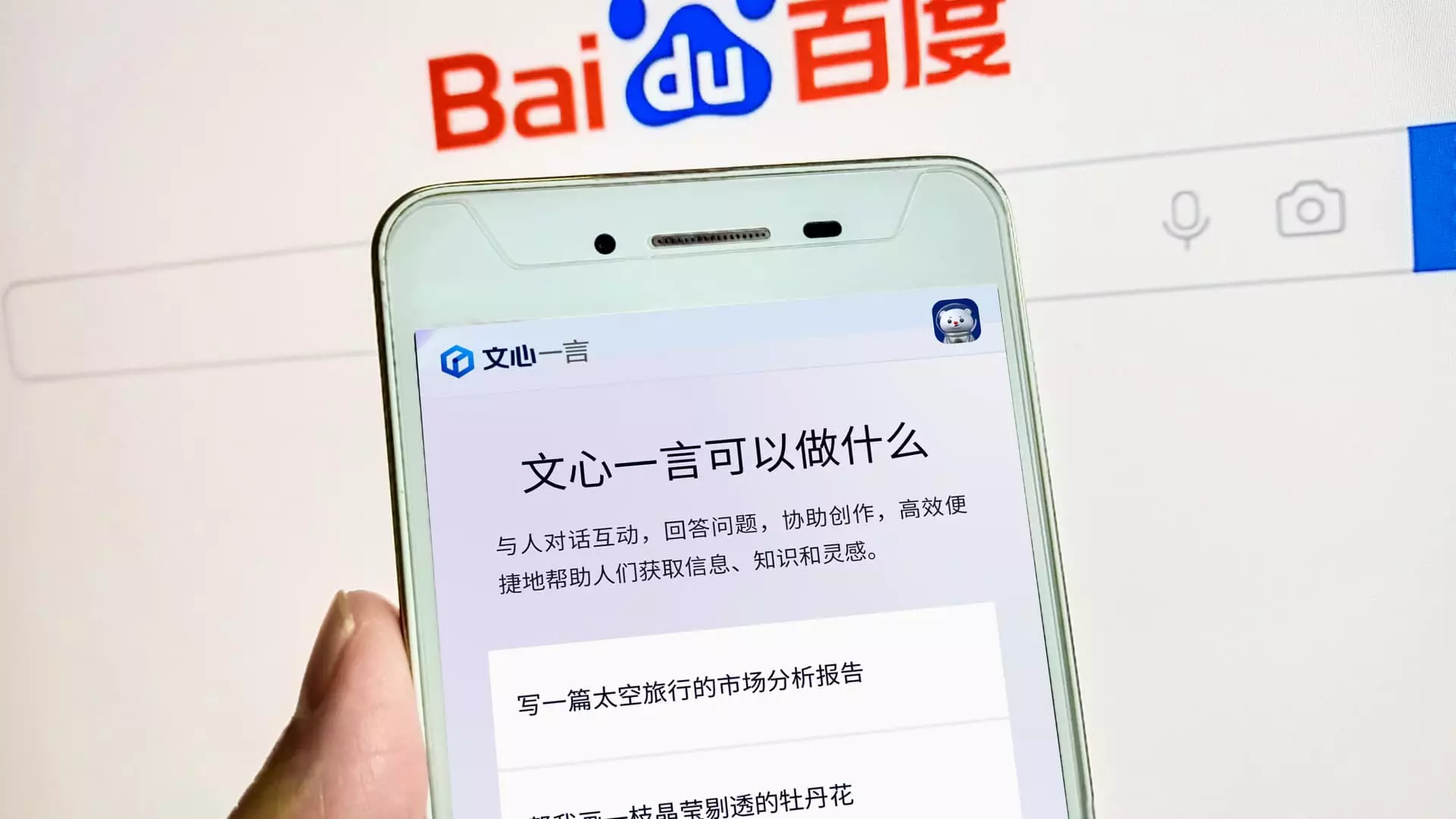In recent years, China’s artificial intelligence landscape has transformed into a battleground, and Baidu, the tech giant once touted as the leader in this field, is now scrambling to keep pace. With the release of its latest AI models—most notably the ERNIE X1 reasoning model—Baidu is making a bid to reclaim its former glory. However, the underlying dynamics reveal that Baidu’s innovation pace has fallen alarmingly behind, as newer players like DeepSeek disrupt the industry with more advanced and accessible technology. This swift turn of events is a wake-up call to Baidu, indicating that it can no longer rely on past triumphs; it must evolve rapidly or risk being rendered obsolete.
The Problem with Proprietary Models
Baidu’s inclination toward proprietary models has contributed significantly to its competitive disadvantage. The decision to keep source code and architectures confidential has, in many ways, trapped the company in a bubble of its own making. Competitors like DeepSeek, which have adopted open-source strategies, have garnered favor by allowing modifications and collaboration across developer communities. They can leverage communal advancements and iterative improvements that Baidu, with its secretive approach, simply cannot. As a result, while Baidu’s teams may toil away at their models in isolation, the open-source crowd exhibits sheer innovation and adaptability, launching powerful alternatives that often come at a fraction of the cost.
Regulatory Hang-Ups
Compounding the company’s challenges are external pressures from government regulatory bodies. Baidu has found itself tangled in bureaucracy and legal complexities, which not only detracts focus from actual product development but also hinders its response times to market shifts. Regulatory crackdowns have not just limited Baidu’s operational agility but have also shaped public perception, causing doubt about the company’s long-term prospects. This need to navigate “regulatory nonsense,” as some analysts have termed it, further exacerbates the stakes; with each delay, Baidu inches closer to losing relevance in a fast-paced sector like AI.
Lack of Differentiation
As the AI market floods with new entrants and models emerging at an unprecedented rate, differentiation becomes key. Yet, so far, Baidu’s offerings have failed to stand out in any significant way. Experts note that the Chinese market remains fiercely competitive, driven by how well models utilize data and respond to particular use cases. Although Baidu boasts access to a wealth of user data from its popular applications, it must leverage this resource intelligently to create truly innovative, user-centric solutions. Rather than merely replicating what others have done, it needs to harness its distinct advantages and pivot quickly before it gets eclipsed by other firms that are already doing so.
Market Sentiment and Future Prospects
Despite a recent push to rejuvenate its AI platform, sentiment toward Baidu remains cautious. Analysts suggest that while the introduction of the ERNIE X1 model is a positive step, it simply highlights how far behind the curve Baidu has fallen. According to observers, the company’s struggles reflect a broader pattern seen across industries where legacy players fail to pivot fast enough to adapt to new technologies and consumer expectations. Innovation is not just about introducing new models; it’s about establishing an agile culture that can swiftly adapt to the relentless pace of change in the tech sphere.
Baidu’s commitment to open-sourcing its next-generation Ernie could potentially shift the paradigm in its favor, but the data indicates that catch-up often leads to only moderate success. In a world where startups respond to user feedback in real time and roll out updates weekly, Baidu’s more bureaucratic structure could become increasingly detrimental. Ultimately, this process favors those who embrace a culture of innovation and agile responsiveness, qualities that have stagnated within Baidu’s corridors.
In the end, the innovative landscape will likely reward those who can anticipate trends, leverage waves of collective intelligence, and rapidly bring effective solutions to market. Unless Baidu can make substantial changes to its operational philosophy and engage deeply with both developers and consumers, it risks becoming a cautionary tale in an industry that is famously unforgiving.

